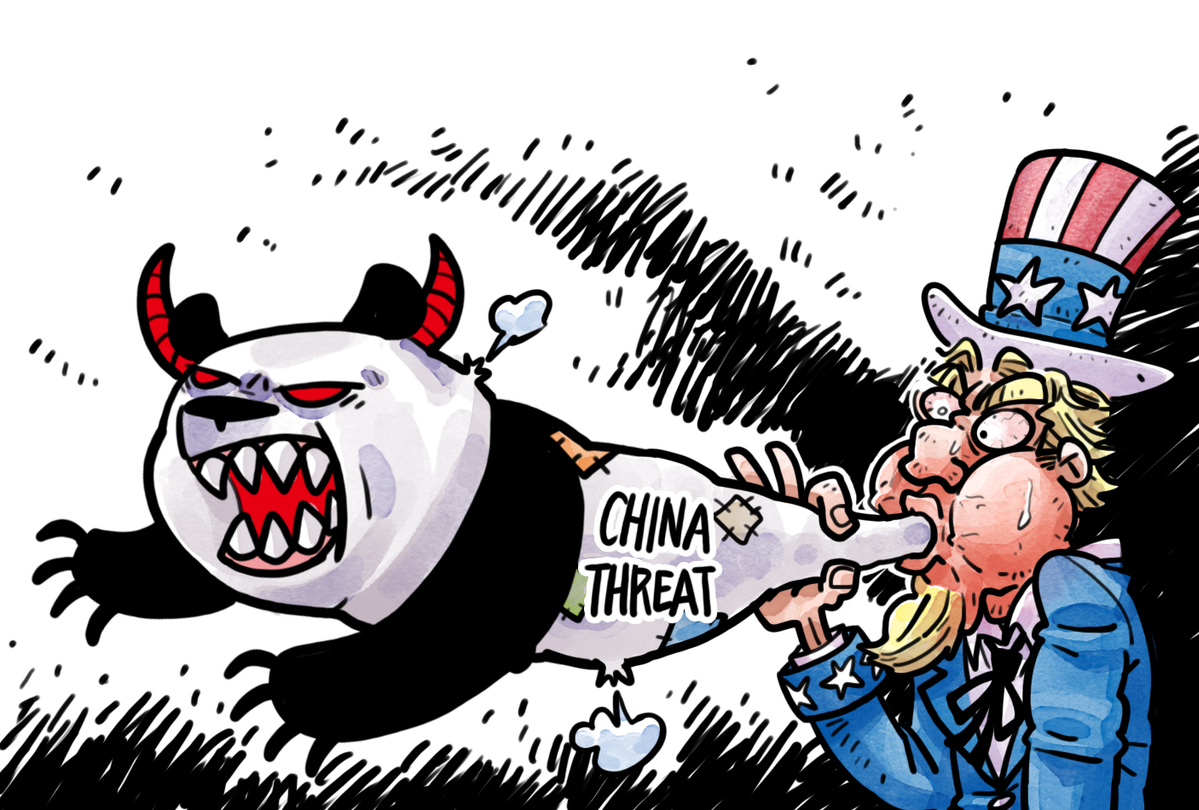US cannot fulfill its dirty goals by portraying China as a threat
By Lan Shunzheng | chinadaily.com.cn | Updated: 2020-10-09 15:03

The United States continues its efforts to sell the "China threat" theory to the world using new tricks, the most latest being the exaggeration of China's military power. But despite trying new ways to sell the unsubstantiated theory, at the core of its attempt is stigmatizing China.
On Wednesday, Robert O'Brien, US national security adviser, said at an event at the University of Nevada in Las Vegas that China was engaged in a massive naval buildup probably not seen since Germany's attempt to compete with Great Britain's Royal Navy prior to World War I. Such ridiculous allegations are nothing but an excuse for the US to play the "China threat" card in order to interfere in China's internal affairs including the Taiwan question.
The clichés used by US politicians to attack China are not new. On Sept 14, Charles A. Richard, head of the US Strategic Command, said China poses a military threat to the US, claiming China has built hundreds of ships since 2013 demonstrating its military ambition. The US Defense Department's report on China's military on Sept 2 said China is developing a world-class military and the People's Liberation Army has exceeded the US in shipbuilding, land-based conventional ballistic and cruise missiles, and integrated air defense systems.
Besides, US Defense Secretary Mark Esper has been repeatedly saying that China is the top military threat to the US.
Washington claims "China is dangerous" and a military threat while knowing full well that there is a big gap in military power between the US and China. For example, although China has the second-largest military budget in the world, the US tops the list with a share of about 40 percent of the global military expenditure that is equal to the total expenditure of the next 10 countries. The US has more advanced and larger tonnage ships, and has more than 4,000 nuclear warheads.
The US has developed a sense of crisis about its global military position and therefore launched surveillance against China, which is still a developing country despite its rapid progress. By exaggerating the size and strength of China's military, twisting its peaceful development strategies, slandering its military modernization and demonizing it for everything it does, the US has been trying to damage China's international image, alienate China from the international community and coerce other countries into blocking China's development and global cooperation.
In recent years, the administration's "America first" policy has undermined the US' soft power and global leadership. And Washington's poor response to the COVID-19 pandemic has exposed the problems in US democracy and human rights which the US had been boasting for a long time.
By portraying China as a security threat, the US wants to present itself as a savior of the world, and draw countries to its side and strengthen its bond with its allies in a bid to maintain its global hegemony and promote US-style democracy through, for instance, its Indo-Pacific strategy.
Thanks to the tricks used by the administration, China has become an imaginary enemy for the US military, which US policymakers are using to hike the military budget, and the US parties, government departments and other organizations are exploiting to seek more political and financial help to counter China's peaceful rise. More importantly, by playing the "China threat" card, Washington can persuade other countries to buy US weapons.
The US is clearly prejudiced against China, as evidenced from its groundless comments on China's development. But, as the world's sole superpower, the US needs to respect facts and stop using China as a pretext to maintain its hegemony.
The author is a research fellow at the Charhar Institute and a member of the Chinese Institute of Command and Control. The views don't necessarily represent those of China Daily.
The views do not necessarily reflect those of China Daily.
If you have a specific expertise and would like to contribute to China Daily, please contact us at opinion@chinadaily.com.cn , and comment@chinadaily.com.cn
























